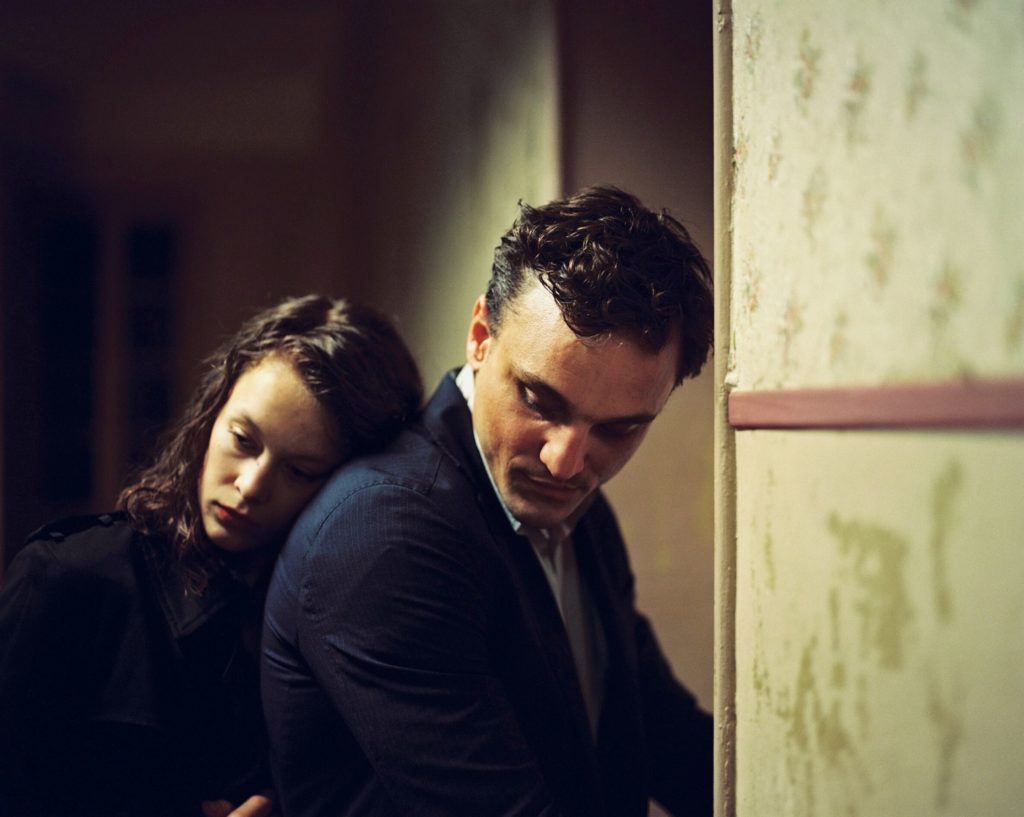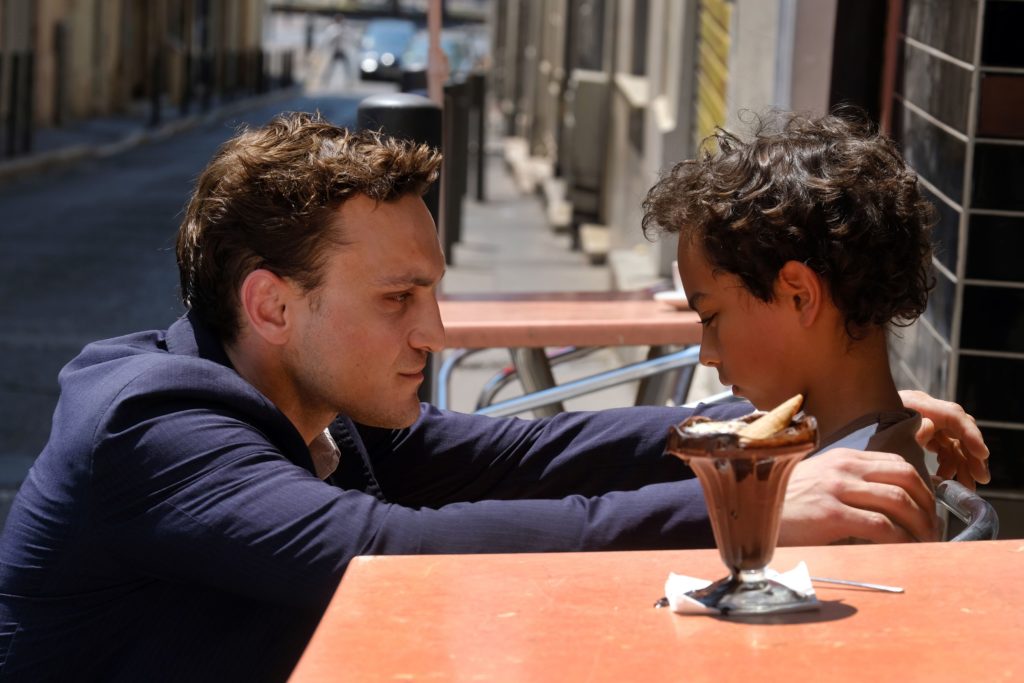
Paula Beer and Franz Rogowski in TRANSIT. Courtesy of Music Box Films
In Christian Petzold’s puzzling thriller Transit, George (Franz Rogowski) flees Paris for his life, just ahead of the invading Nazis. He assumes the identity of a dead author, which comes with a ticket from Marseilles to the safety of the Western Hemisphere. Trouble is, the ship won’t leave for weeks, so he must wait it out in Marseilles as the Nazis get closer and closer. He finds himself in a community of other refugees – all forlornly hoping for a ticket, a visa, a letter of transit so they can get out, too. Completely at the disposal of impenetrable bureaucracies, their situation is Kafkaesque. It’s a puddle of human desperation, and the clock is ticking.
Georg glimpses a mysterious beauty, Marie (Paula Beer). She turns out to be the widow of the man that Georg is impersonating, but she doesn’t know that her husband is dead. What Georg knows is that he also has papers for her to join him on the escape ship. While waiting for her husband to appear in Marseilles, she has taken up with the altruistic doctor Richard (Godehard Giese).
So, we have European refugees holed up, trying to get letters of transit to escape the Nazis. Our protagonist is in love with a woman, who is with a selfless idealist. Yes, this story does have its similarities to Casablanca – there’s even a dramatic sacrifice at the end. But the impeccably plotted Casablanca is easy to follow, and Transit has its surreal aspects. Casablanca is of its time – when individuals subsumed their interests to a great, global cause: “I’m no good at being noble, but it doesn’t take much to see that the problems of three little people don’t amount to a hill of beans in this crazy world.” Set in the same wartime period, Transit is of our time – focused on the micro-plight of individuals.
I’m trying to think how to explain this – it’s a period story shot in modern times. So, the characters wear 1940s clothes and use 1940s typewriters. But the environs are modern Paris and Marseilles, so the storm troopers are modern French SWAT teams and the police vehicles are modern French cop cars with their Euro sirens. It may sound weird, but it worked for me. I just became absorbed in figuring out what was going on.

There is a sweet and effective subplot involving Georg and a boy with a disability. Their relationship is the most relatable part of Transit.
Franz Rogowski (so good as Boxer in Victoria) has an intensity that pays off in his portrayal of Georg, who is either escaping or, when he has a moment, seeking. Beer captures Marie’s unreliability and fragility; she makes us understand why Georg’s would be so attracted to Marie – and why that might not work out for him.
At some point in Marseilles, Transit lost me. I still was engaged in the intellectual execise of figuring out the puzzles, but I stopped caring about Georg and Marie. Christian Petzold’s previous films Barbara and Phoenix prove that he is an exceptional filmmaker. Transit, for all its originality just isn’t Petzold’s best.
